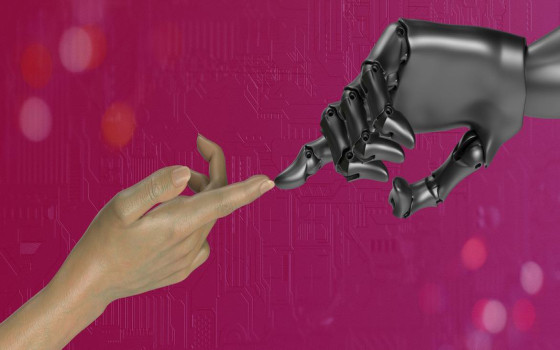
UN: The rapid growth of artificial intelligence "exceeds our ability to manage it, raising fundamental questions about accountability, equality, safety and security

- Europe and Arabs
- Friday , 20 December 2024 7:28 AM GMT
New York: Europe and the Arabs
UN Secretary-General Antonio Guterres said that artificial intelligence is not only reshaping our world, but is revolutionizing it, warning that the rapid growth of artificial intelligence "is outpacing our ability to manage it, raising fundamental questions about accountability, equality, safety and security, and the role of humanity in decision-making." According to the UN daily news bulletin, a copy of which we received on Friday morning.
In his briefing to a Security Council meeting held yesterday, Thursday, on artificial intelligence and the maintenance of international peace and security, Guterres said that "artificial intelligence without human supervision would leave the world blind." He stressed that the fate of humanity should never be left in the hands of the "black box" of algorithms, adding that "humans must always retain control over decision-making functions, guided by international law, including international humanitarian law and international human rights law, and ethical principles."
He said that the hand of humanity is the one that created artificial intelligence, "and it is the one that should guide it forward."
Key concerns
The UN chief said AI tools were already making a positive difference in countries affected by conflict and insecurity, including by identifying food insecurity and predicting displacement caused by extreme weather events and climate change.
But he warned that AI was also entering the battlefield in more worrying ways, noting that recent conflicts had become a testing ground for military AI applications. “The expansion of AI into security systems raises fundamental concerns about human rights, dignity and the rule of law,” Guterres said.
He warned that the AI arms race was creating a breeding ground for misunderstanding, miscalculation and errors. He added that the integration of AI into nuclear weapons was “particularly worrying, with potentially catastrophic consequences.”
He also noted that quantum AI systems could breach the strongest defences and rewrite the rules of digital security overnight.
Deepfakes
The secretary-general also stressed that other threats to peace and security posed by AI must be addressed.
“AI creates hyper-realistic content that can spread instantly across online platforms, manipulating public opinion, threatening the integrity of information, and making truth indistinguishable from outright lies. Deepfakes can cause diplomatic crises, foment unrest, and undermine the foundations of societies,” he said.
The massive energy and water consumption of AI data centers, coupled with the rush for critical minerals, is creating dangerous competition for resources and geopolitical tensions, he said.
Uniting Efforts
The UN chief noted the work of the High-Level Advisory Panel on Artificial Intelligence, which has developed a blueprint to address the profound risks and opportunities that AI presents to humanity.
He also spoke of the Global Digital Charter, adopted at the Summit for the Future, which represents the first globally endorsed framework on AI governance.
The Charter commits to establishing an independent International Scientific Committee on AI and to starting a global dialogue on AI governance within the UN, giving every country a seat at the table.
“We must never allow AI to be the embodiment of inequality,” Guterres said. He stressed that no state should design, develop, deploy or use military applications of artificial intelligence in armed conflicts that violate international law, international humanitarian law and human rights, adding that this includes relying on artificial intelligence to select targets or deal with them independently. The UN Secretary-General called for "joining efforts to build a safe and inclusive future for artificial intelligence."












No Comments Found